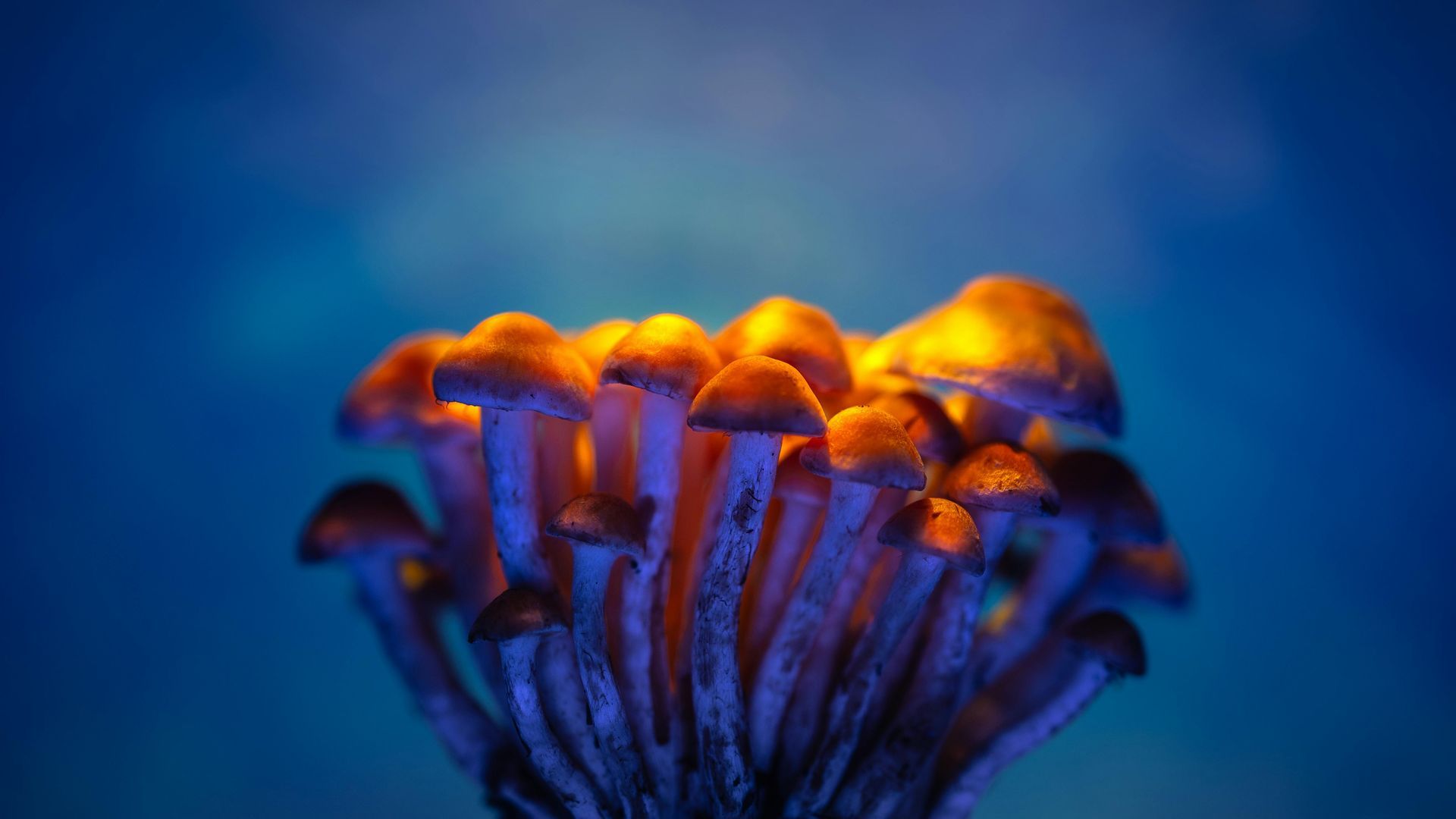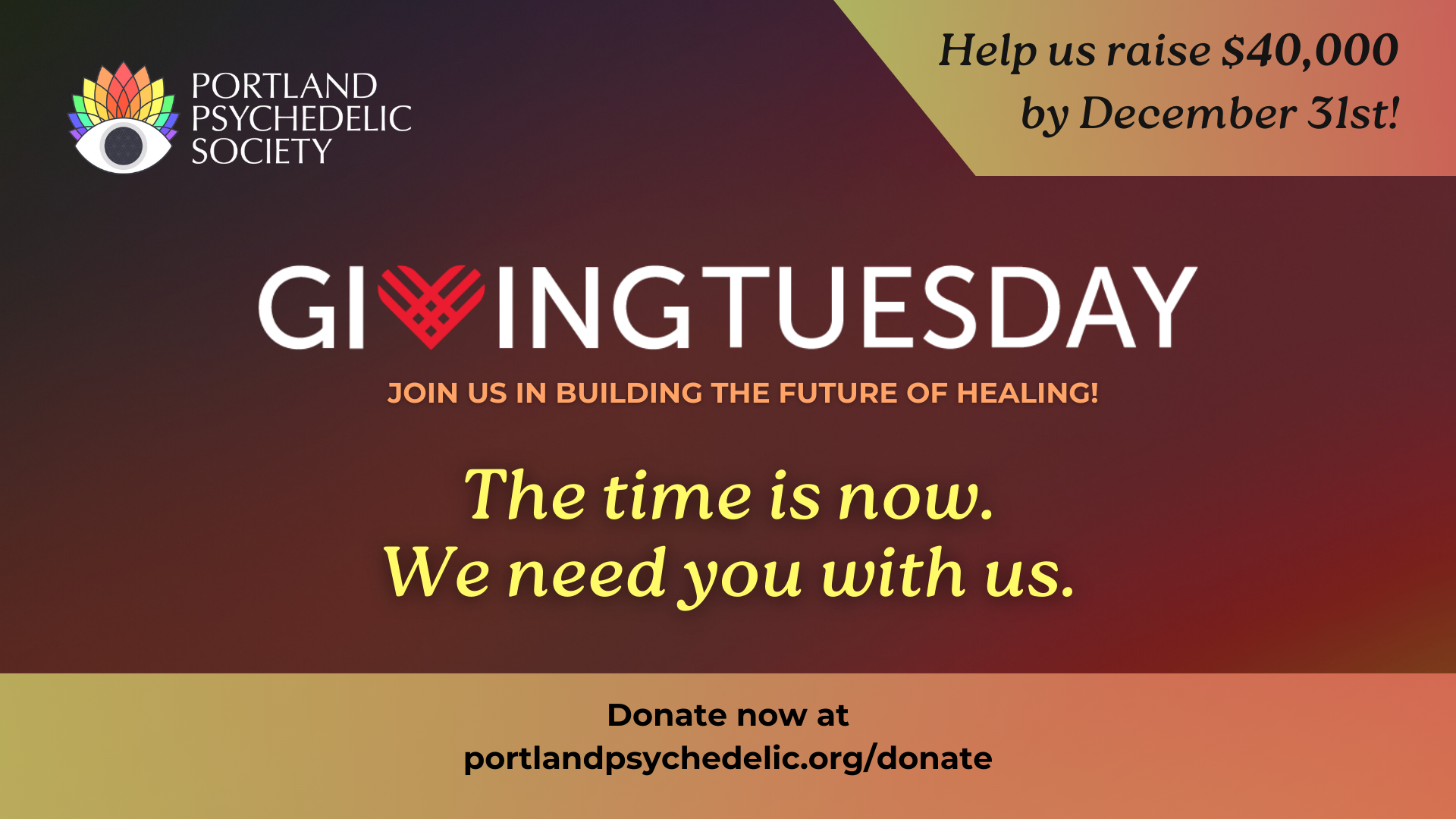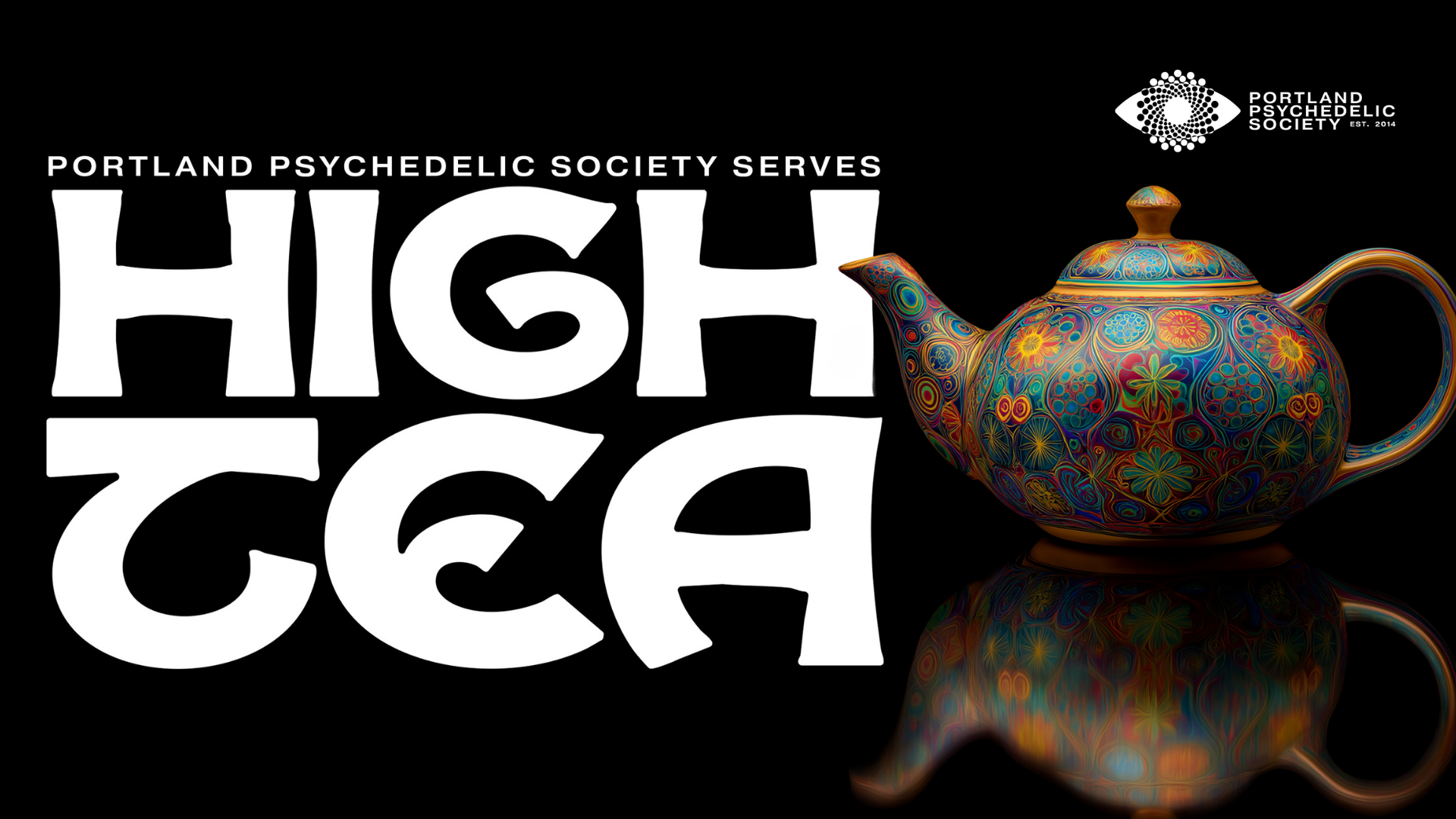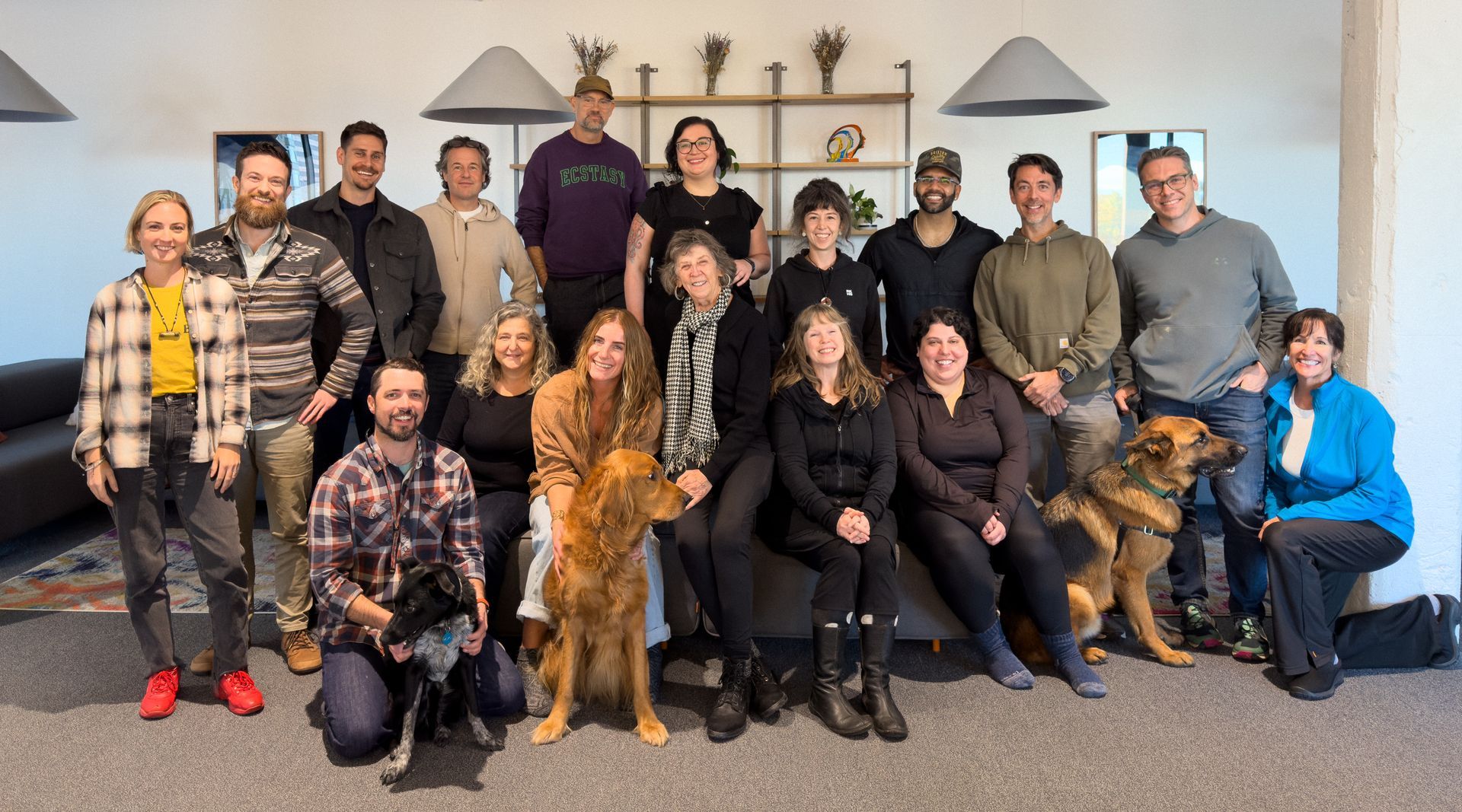What Drug Recriminalization May Mean for Our Psychedelic Community
In 2020, Oregon voters approved Measure 110, which decriminalized the possession of small amounts of controlled substances. The penalty for such possession was reduced to the level of about a traffic ticket, which could be avoided by seeking treatment. The Measure and related efforts also expanded Oregon’s addiction treatment network.
Motivated by an opioid overdose crisis, the Measure was positioned as a way to treat addiction as a public health issue rather than as a criminal issue. It was heralded as the beginning of the end to the War on Drugs, which had wrought destruction upon Black, brown, and Indigenous communities within Oregon, the United States, and the world.
The Measure also decriminalized the possession of small amounts of psychedelic substances such as psychedelic mushrooms, LSD, and MDMA. Although psychedelics were not the Measure’s primary focus, this change came as a relief to underground psychedelic practitioners, who had been working for decades outside of legal frameworks to provide healing experiences to many struggling with ailments of the mind and spirit, including addiction.
The use of psychedelic substances to heal addiction dates back to at least the 1950s, when Bill Wilson, one of the founders of Alcoholics Anonymous, found LSD to be highly helpful in his own recovery, years before LSD and other psychedelics were declared illegal. The underground preserved psychedelic practices through decades of persecution. For many, Measure 110 represented the dawn of an era of liberation.
This hope was further supported by Measure 109, approved that same year, which provided psychedelic practitioners with a pathway to practice within a new statewide legal framework. In light of research from leading universities which showed the healing potential of psychedelic mushrooms, Measure 109 enabled a supervised adult use model, so that psychedelic mushrooms could be administered in service centers under the supervision of trained professionals. However, in part because training and services have proven costly with minimal state support, many practitioners have remained underground.
The need for healing was becoming more urgent in 2020, as Oregon’s street supply transitioned from heroin to fentanyl, a drug whose potency made it more portable, but also more likely to cause an overdose. During a local conference on substance use, I learned from a presentation by Haven Wheelock of Outside In that people who used opioids expressed concern for their safety. To better control intake and reduce the risk of overdose, harm reductionists advised that fentanyl be smoked, not injected.
It is known through experience that, when fentanyl is smoked, the sensation of wellness which it provides does not last long, leading one to smoke more than once per hour. Largely for that reason, public drug use became more frequent, and therefore more visible.
Authorities received complaints about street drug use, and they could have responded to these complaints in several ways. Police were typically reluctant to issue the tickets permitted by Measure 110, believing them to be ineffective. To my knowledge, the possibility of permitting and establishing supervised use sites for habit-forming drugs, such as those implemented in New York City, was not part of Oregon’s discourse.
This year, while the addiction treatment network expansion approved by Measure 110 remains under construction, Oregon’s law and policymakers have largely chosen to work toward recriminalizing drug possession.

What May Be in Store for Psychedelia
Recently, Oregon’s legislative bodies passed a bill that would recriminalize possession of small amounts of controlled substances. This past Friday, Oregon Public Broadcasting reported that Governor Tina Kotek would sign recriminalization into law sometime in the next thirty days. I see two main ways in which recriminalization is likely to impact our community:
First, social stigma around the use of habit-forming drugs has lingered despite decriminalization, and recriminalization is likely to reinforce that stigma. Similar to what has long been observed by addiction professionals, people who use habit-forming drugs may feel discouraged from seeking professional psilocybin services. Even those who seek services may find it difficult to open up about their struggles with substances, potentially withholding key information needed to provide services in a safe and effective way.
Second, recriminalization may have a chilling effect upon underground practitioners, who provide healing services to many without access to payment. In part because people of color are disproportionately scrutinized by police, these practitioners have mostly been white, and recriminalization will likely further discourage entry into the practice by people of color. Further, underground practitioners have customarily limited the risk of state intervention by providing services to those within their trusted social networks, a practice with a probable side effect of limiting client diversity. Recriminalization would likely magnify the effects of these factors, further entrenching social inequity in access to healing.
In sum, recriminalization is likely to further discourage access to professional psychedelic services, while also restricting diversity among informal healers and their clientele.

Moving Through Struggle
Our psychedelic community has been treated as tangential to the conversations around Measure 110 and the possibility of recriminalization. Still, decriminalization provided welcome breathing space, which may soon vanish.
Since our community has not been centered in the discourse, it does not seem likely that we will be targeted for enforcement. All the same, our community would be well-advised to revisit our privacy-respecting practices, while bearing in mind the limitations of a digitally-connected world. Since our culture is one of independent-mindedness, the following tips are to be interpreted as suggestions.
First, on practices of naming ourselves and others. Among us there is a group that hails from twelve-step culture. Through nearly ninety years of experience, such groups have developed practices for protecting their members from judgment. In particular, they practice anonymity, by which it is meant that they customarily offer only a first name and a last initial. This practice seems to serve a dual purpose, by also buttressing a culture of humility.
Next, on recording. For the majority of meetings, handwritten or typed notes describing topics addressed and decisions made are sufficient and manageable. Sometimes, it is also pertinent to note points of discussion. Collective experience has shown that recording, whether audio, visual, or even photographical, tends to produce discomfort, constraining the conversation and stifling creativity by presenting the risk of undue scrutiny and exposure, while also producing far more information than can feasibly be managed or used. And let me be clear: there is no reason to believe that recordings stored “in the cloud” are only accessible to those in possession of the password.
On that note, it would also be wise to visit artificial intelligence settings for video-conferencing software, to ensure that any automated captions and transcripts, which may be needed by people with disabilities, expire from online storage within a reasonable period of time. Moreover, any automated summaries, which may be useful for reducing secretarial work, should be routinely checked for identifying information.
***
Among historians, the term “dark age” does not refer to an age in which no knowledge is produced, but to an age from which there are few surviving records. To be on the best possible footing, the fledgling profession of psychedelic facilitators would do well to draw upon the wealth of knowledge produced during the psychedelic dark age.
However, even under decriminalization, it has been less than easy to form collaborative networks between professionals and the underground. Up until now, I held hope that a broader legalization, an age of blissful ease and enlightenment, would soon arrive.
But now, it seems, the night grows darker once again. I am keeping faith that a daybreak may yet come. Until then, I will pray to the stars.
***
Thank you to my reviewers, who provided the encouragement I need to complete this post. This blog post was prepared by myself in my personal capacity. Any views expressed in this post are mine and do not reflect the view of Portland Psychedelic Society.
share
RECENT ARTICLES



